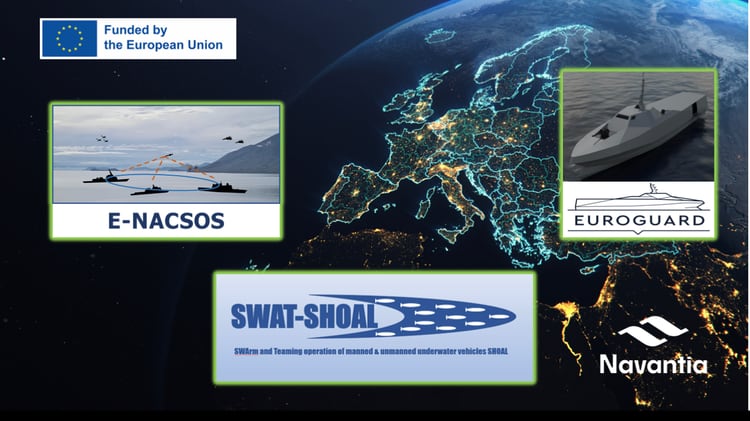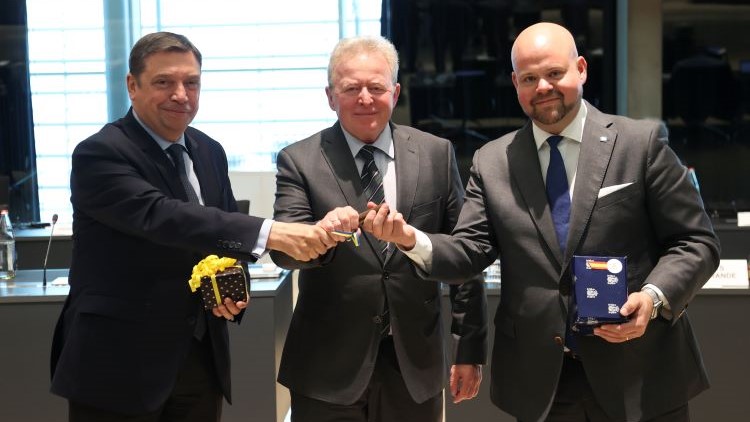The Diplomat
Navantia will participate in three of the 2022 European Defence Fund (EDF) research and development projects, which have just been selected and will begin to be implemented in December of this year.
These are the SWAT-SHOAL, E-NACSOS and EUROGUARD projects, all of them within the framework of the strategic objectives of the Ministry of Defence and the Navy, and with a total amount of 221 million euros, and which, according to the company, will contribute to Navantia’s strategy of positioning itself at the technological forefront of defence companies in Europe.
The shipping company is strengthening its position in the main areas of technological development, such as collaborative naval operations, autonomous navigation and combined missions with underwater and surface drone swarms.
The SWAT-SHOAL project is led by Navantia and involves 20 organisations from 11 countries, including the Spanish companies SENER, SAES and GMV. It develops the concept of a System of Systems that integrates different types of manned and unmanned vehicles in a swarm to achieve greater efficiency in underwater missions, such as surveillance, reconnaissance, mine warfare, collaborative confrontations or support for amphibious operations. Navantia thus strengthens its position as an integrator of swarms of unmanned vehicles in Command and Control Systems, both submarine and surface, increasing interoperability in the naval domain.
The E-NACSOS project aims to define the European standard for the exchange and fusion of real-time sensor information between Combat Systems, which will strengthen collaborative surveillance in European naval forces and increase the effectiveness of naval surface and anti-aircraft operations. The scope includes the implementation of national demonstrators of the participating countries, including both simulated tests and sea trials with real units. The programme is led by the French company Naval Group and, in addition to Navantia, Indra and the University of Vigo are also participating from Spain.
Finally, the EUROGUARD project, led by the Estonian company Baltic Workboats, will combine cutting-edge and innovative technologies to develop and build the prototype of a medium-sized, versatile and pioneering semi-autonomous surface naval vessel. Operational tests of the prototype will be carried out in a real environment, including the shore control station to be developed by Navantia, from which all the ship’s systems will be monitored and controlled. These developments may be scalable to other future types of autonomous and semi-autonomous European vessels.
In this way, Navantia continues its line of collaboration with the main European defence companies, a strategy that has already received the support of the EDF in projects such as the design and construction of the European Corvette (EPC), the development of the digital platform for the next generation of European combat ships (EDINAF), the European Multi-Domain Combat Cloud (EDOCC), the future hypersonic missile defence system (HYDEF), the structural monitoring of naval platforms in combat (dTHOR), the inertial navigation and quantum gravimeter system (Q-SiNG), the autonomous off-shore maritime surveillance platforms (USSPs) or the prospection of technologies for future naval platforms (SEA DEFENCE).







